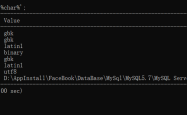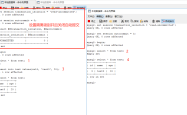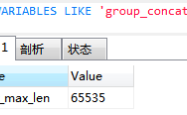MySQL中or、in、union与索引优化详析
本文缘起自《一分钟了解索引技巧》的作业题。
假设订单业务表结构为:
?| 1 | order (oid, date , uid, status, money, time , …) |
其中:
- oid,订单ID,主键
- date,下单日期,有普通索引,管理后台经常按照date查询
- uid,用户ID,有普通索引,用户查询自己订单
- status,订单状态,有普通索引,管理后台经常按照status查询
- money/time,订单金额/时间,被查询字段,无索引
- …
假设订单有三种状态:0已下单,1已支付,2已完成
业务需求,查询未完成的订单,哪个SQL更快呢?
- select * from order where status!=2
- select * from order where status=0 or status=1
- select * from order where status IN (0,1)
- select * from order where status=0
union all
select * from order where status=1
结论:方案1最慢,方案2,3,4都能命中索引
但是...
一:union all 肯定是能够命中索引的
?| 1 2 3 4 5 | select * from order where status=0 union all select * from order where status=1 |
说明:
直接告诉MySQL怎么做,MySQL耗费的CPU最少
程序员并不经常这么写SQL(union all)
二:简单的in能够命中索引
?| 1 | select * from order where status in (0,1) |
说明:
让MySQL思考,查询优化耗费的cpu比union all多,但可以忽略不计
程序员最常这么写SQL(in),这个例子,最建议这么写
三:对于or,新版的MySQL能够命中索引
?| 1 | select * from order where status=0 or status=1 |
说明:
让MySQL思考,查询优化耗费的cpu比in多,别把负担交给MySQL
不建议程序员频繁用or,不是所有的or都命中索引
对于老版本的MySQL,建议查询分析下
四、对于!=,负向查询肯定不能命中索引
?| 1 | select * from order where status!=2 |
说明:
全表扫描,效率最低,所有方案中最慢
禁止使用负向查询
五、其他方案
?| 1 | select * from order where status < 2 |
这个具体的例子中,确实快,但是:
这个例子只举了3个状态,实际业务不止这3个状态,并且状态的“值”正好满足偏序关系,万一是查其他状态呢,SQL不宜依赖于枚举的值,方案不通用
这个SQL可读性差,可理解性差,可维护性差,强烈不推荐
六、作业
这样的查询能够命中索引么?
?| 1 2 3 4 5 6 7 8 9 | select * from order where uid in ( select uid from order where status=0 ) select * from order where status in (0, 1) order by date desc select * from order where status=0 or date <= CURDATE() |
注:此为示例,别较真SQL对应业务的合理性。
总结
以上就是这篇文章的全部内容了,希望本文的内容对大家的学习或者工作具有一定的参考学习价值,谢谢大家对服务器之家的支持。
原文链接:https://mp.weixin.qq.com/s/ZWez27EmVw_u7GzNbvXuYw
1.本站遵循行业规范,任何转载的稿件都会明确标注作者和来源;2.本站的原创文章,请转载时务必注明文章作者和来源,不尊重原创的行为我们将追究责任;3.作者投稿可能会经我们编辑修改或补充。











